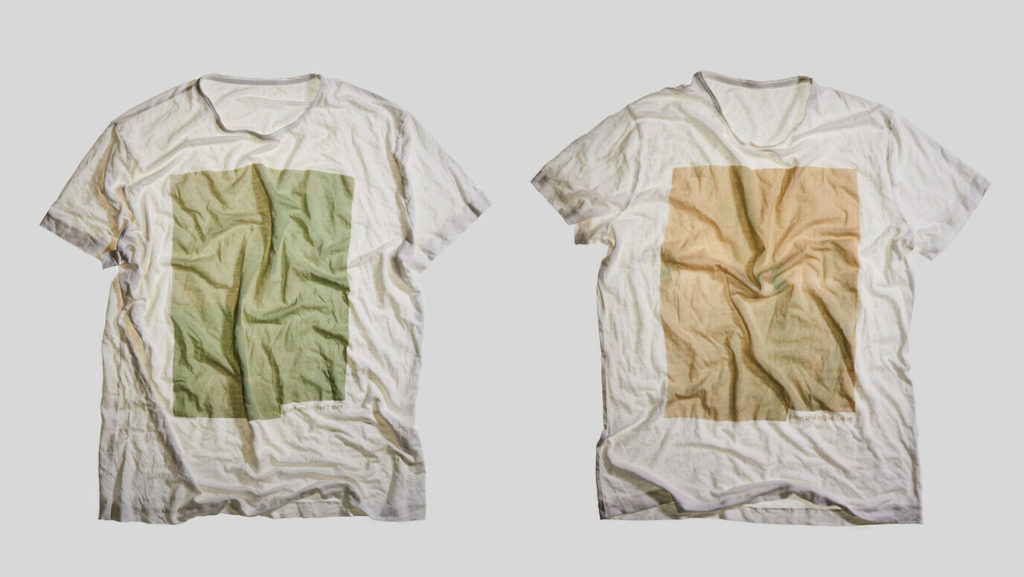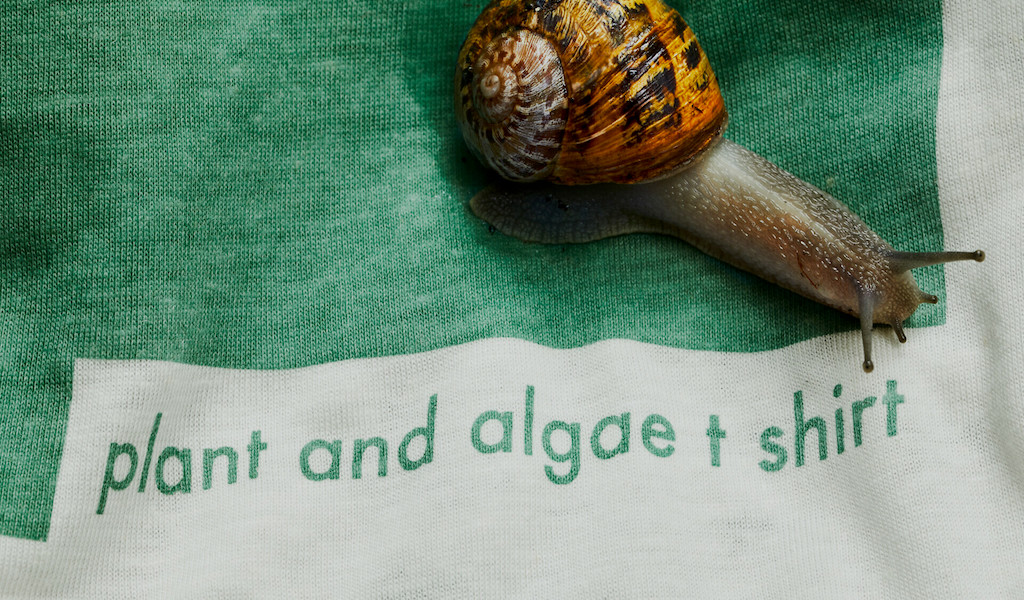3 Mins Read
An apparel brand based in the United Kingdom, Vollebak, just launched its Plant & Algae t-shirt line, which will decompose in 12 weeks once buried in soil (yes, you can bury your t-shirt in your garden). Made from raw plant materials and algae, the innovative “part t-shirt, part worm food” already has a long waiting list of customers since its release in late August. The brand hopes that their low environmental impact approach to fashion will become more mainstream in the industry over time and contribute towards the future of sustainable clothing.
The material of the Plant & Algae t-shirt is made from a combination of FSC and PEFC certified sustainable beech wood and eucalyptus pulp, and bioreactor-grown algae. Sourced from sustainable forest plantations, the wood is harvested, pulped and turned into fibre yarns to churn out raw fabric. Vollebak also uses algae for pigment because it only requires light, carbon dioxide and water to grow rapidly, and is highly adaptable for inks used on fabrics and textiles. Unlike traditional fabric dyes, the 3D-printed algae ink naturally de-colours over time due to oxidation. Once customers are done with their t-shirt, they can simply bury it in the garden or in a pot of soil, where it will naturally decompose within 8-12 weeks.

The development of a fully biodegradable t-shirt, made entirely from plants and algae, will no doubt contribute to the future of low impact fashion. The fashion industry is responsible for colossal amounts of waste and pollution. In Hong Kong alone, discarded garments make up the 343 tonnes of textile waste dumped in the city’s landfills every single day, according to the Environmental Protection Department (EPD). While more fashionistas have begun to embrace “share what you wear” platforms or reselling clothes, the fact remains that 85% of all clothing and textiles still ends up in landfills, regardless of whether it was newly purchased or resold.
In addition, fast fashion doesn’t seem to be going anywhere anytime soon. Despite some key industry players struggling – Forever21 and GAP both announced store closures in the past few months – fast fashion still seems to be on the rise. According to Hitwise data, fast fashion retail is currently accounting for two-thirds of all online fashion traffic since the first half of this year. With fast fashion reported to be responsible for 20% of the world’s water wastage, 10% of carbon emissions and 92 million tonnes of waste globally, it is important that new solutions arise to tackle our clothing addiction. Eco-friendly innovations, such as the Plant & Algae t-shirt, which takes into account the end-life of a product, are crucial developments that we hope to see more of for the future of our planet.
All images courtesy of Vollebak.




